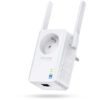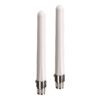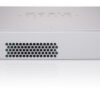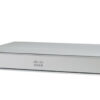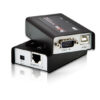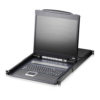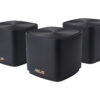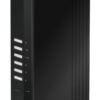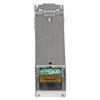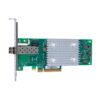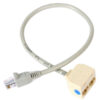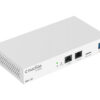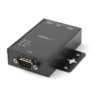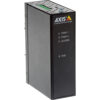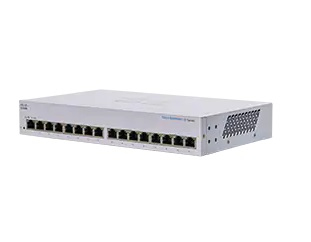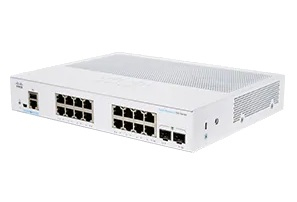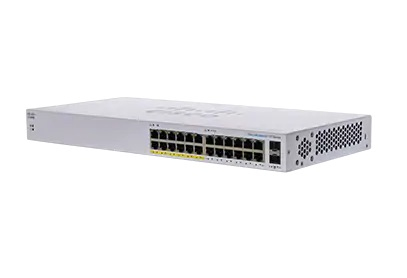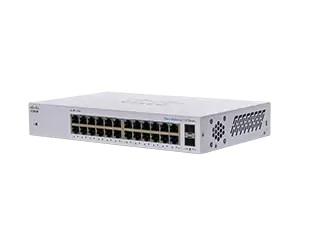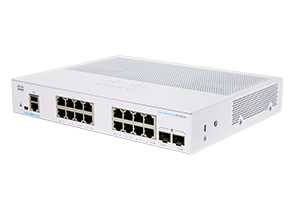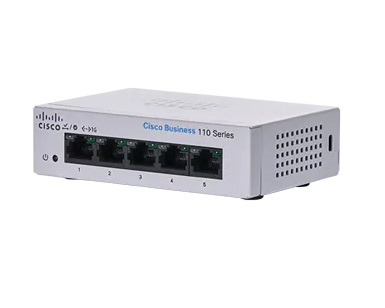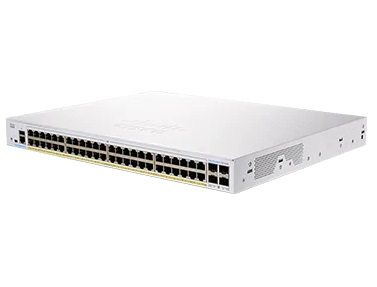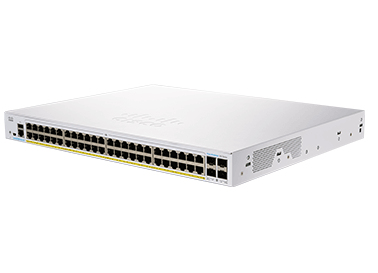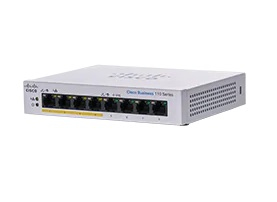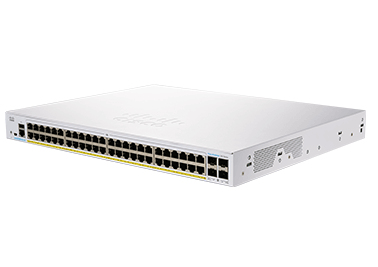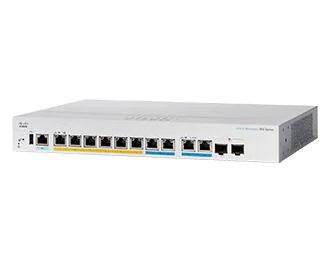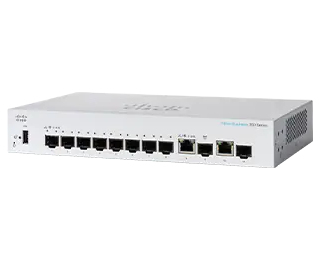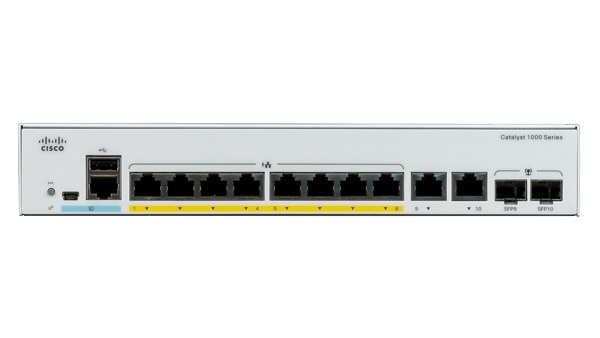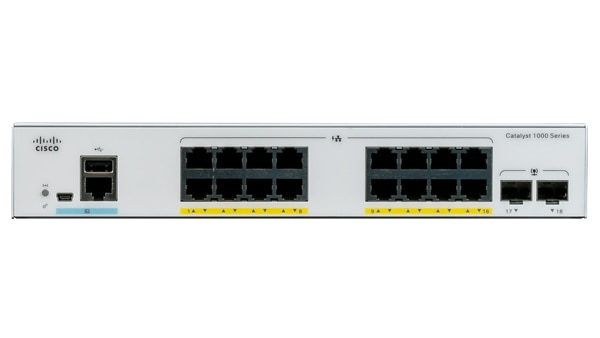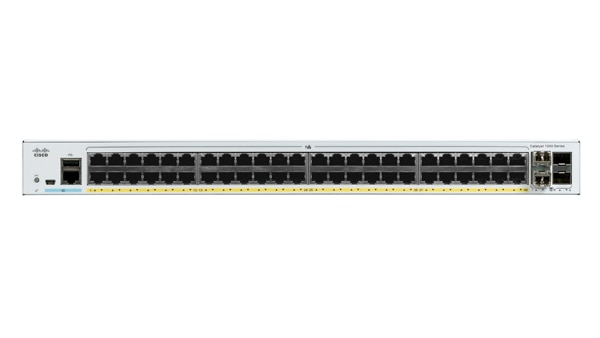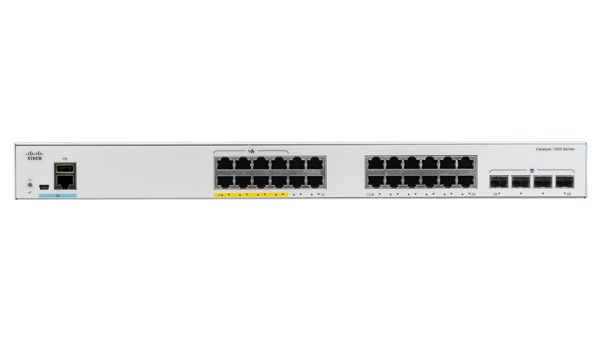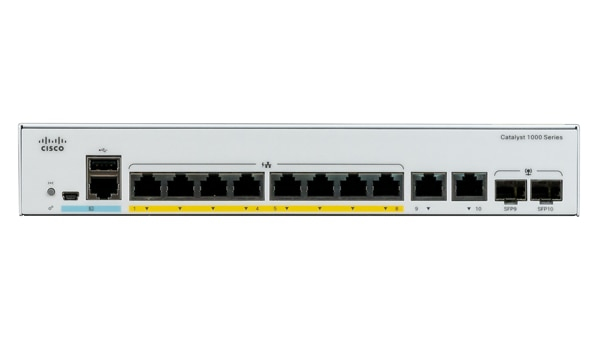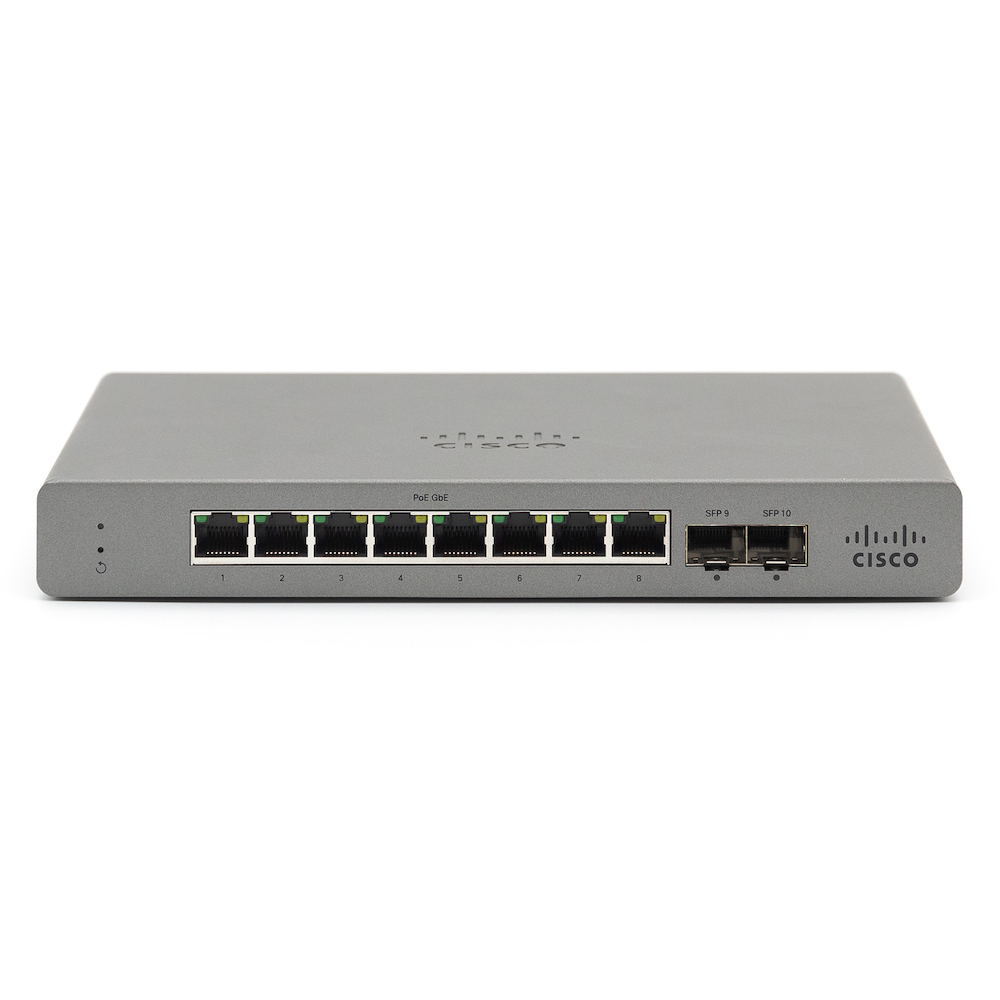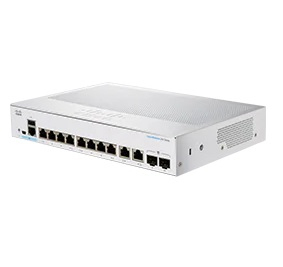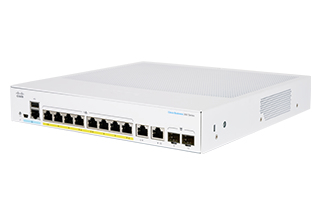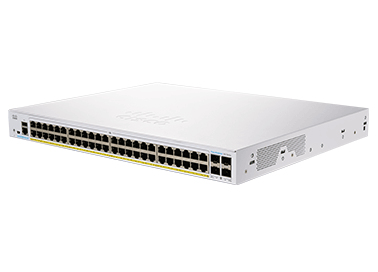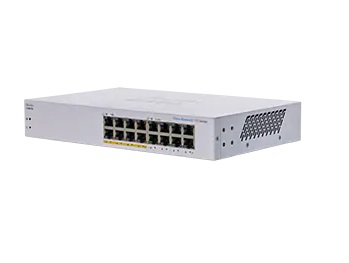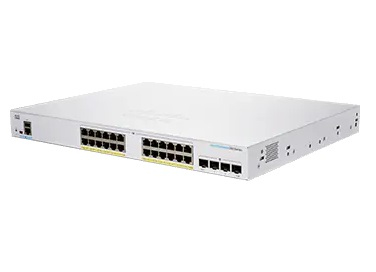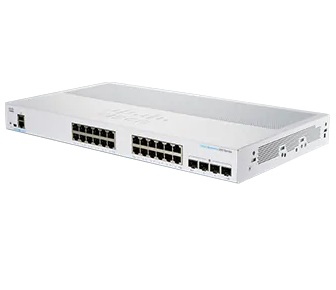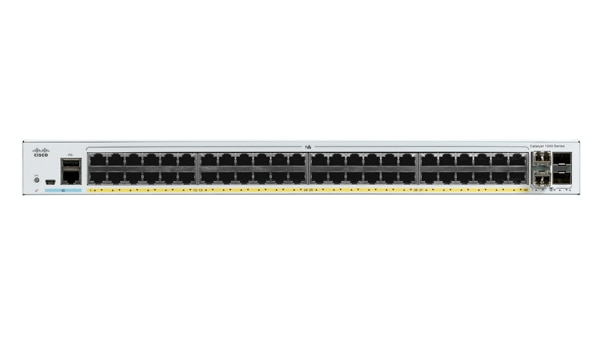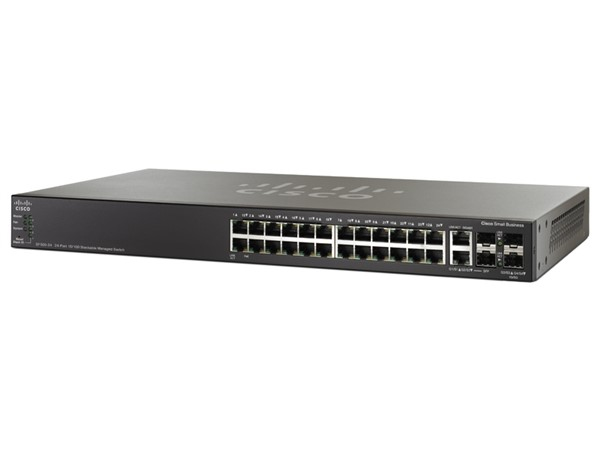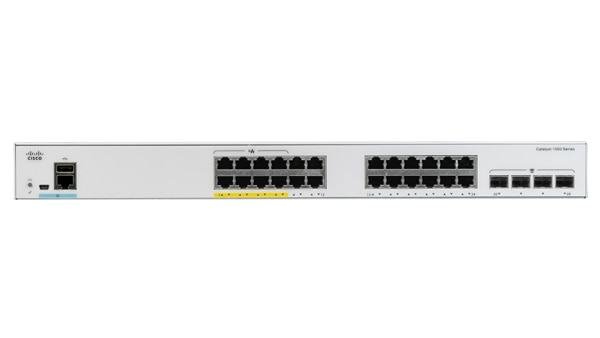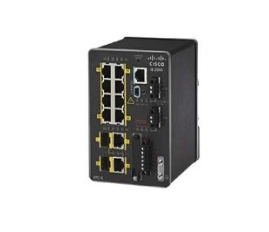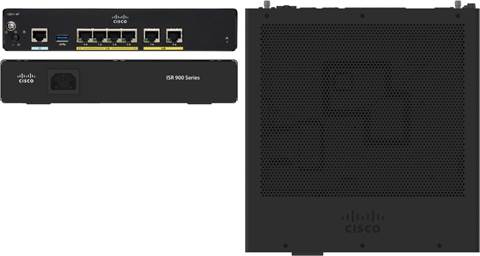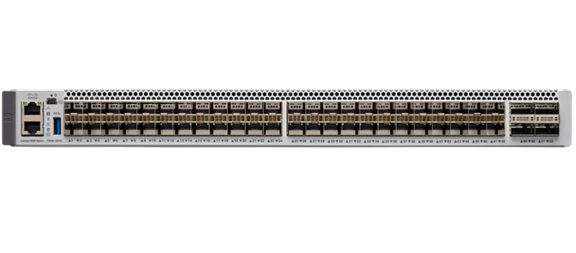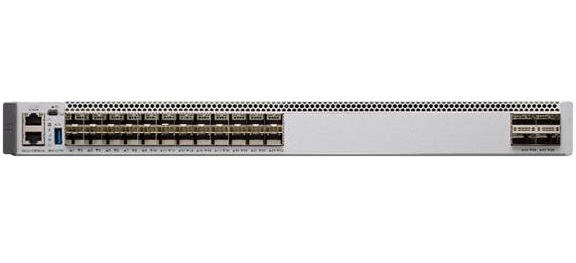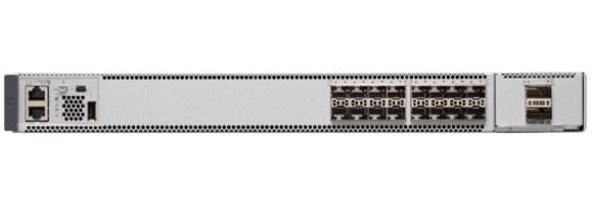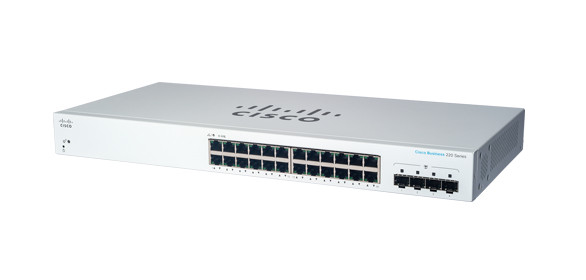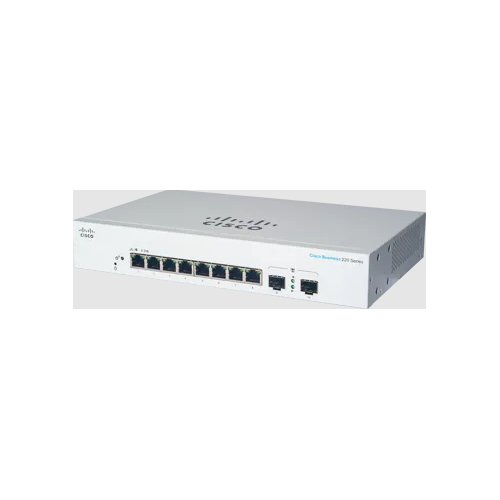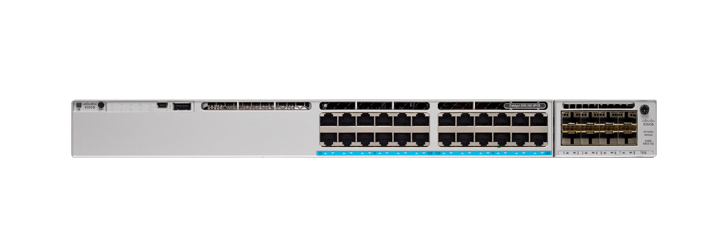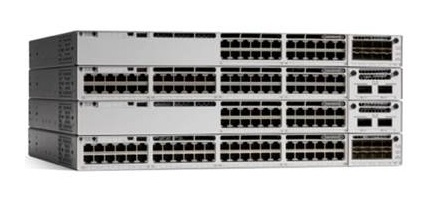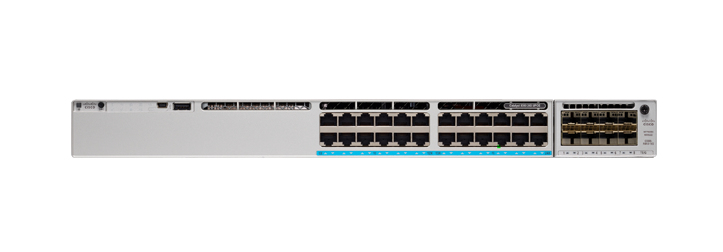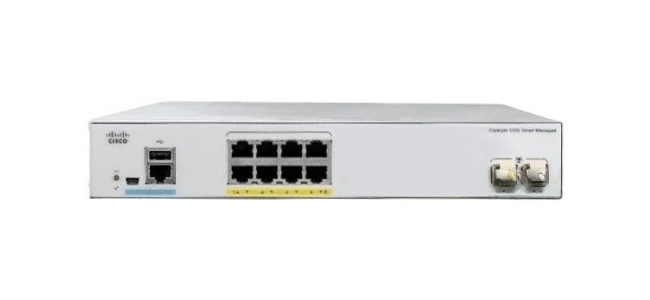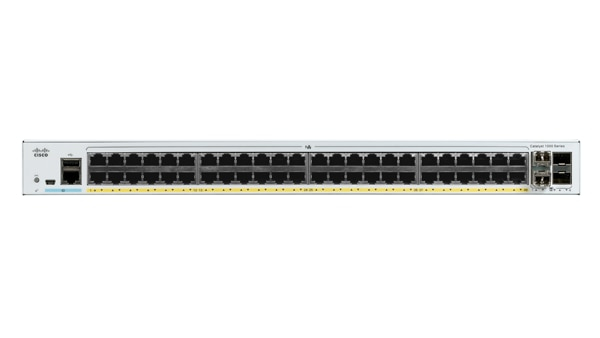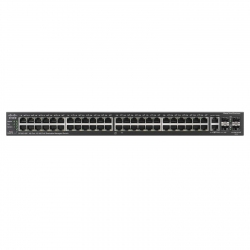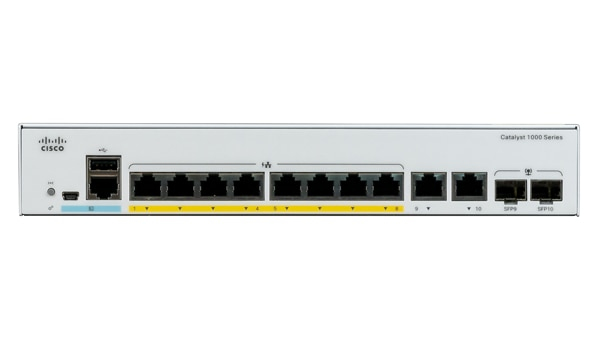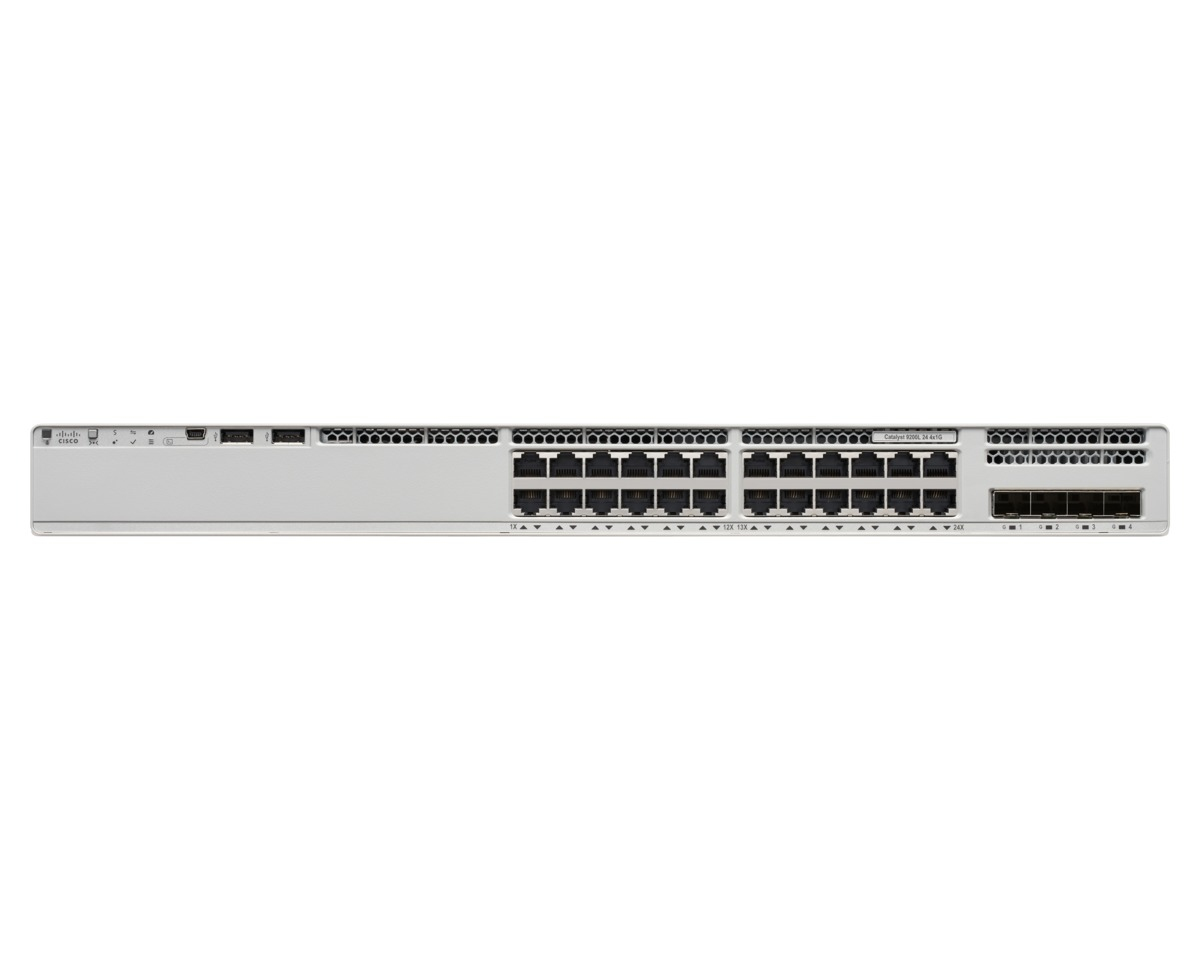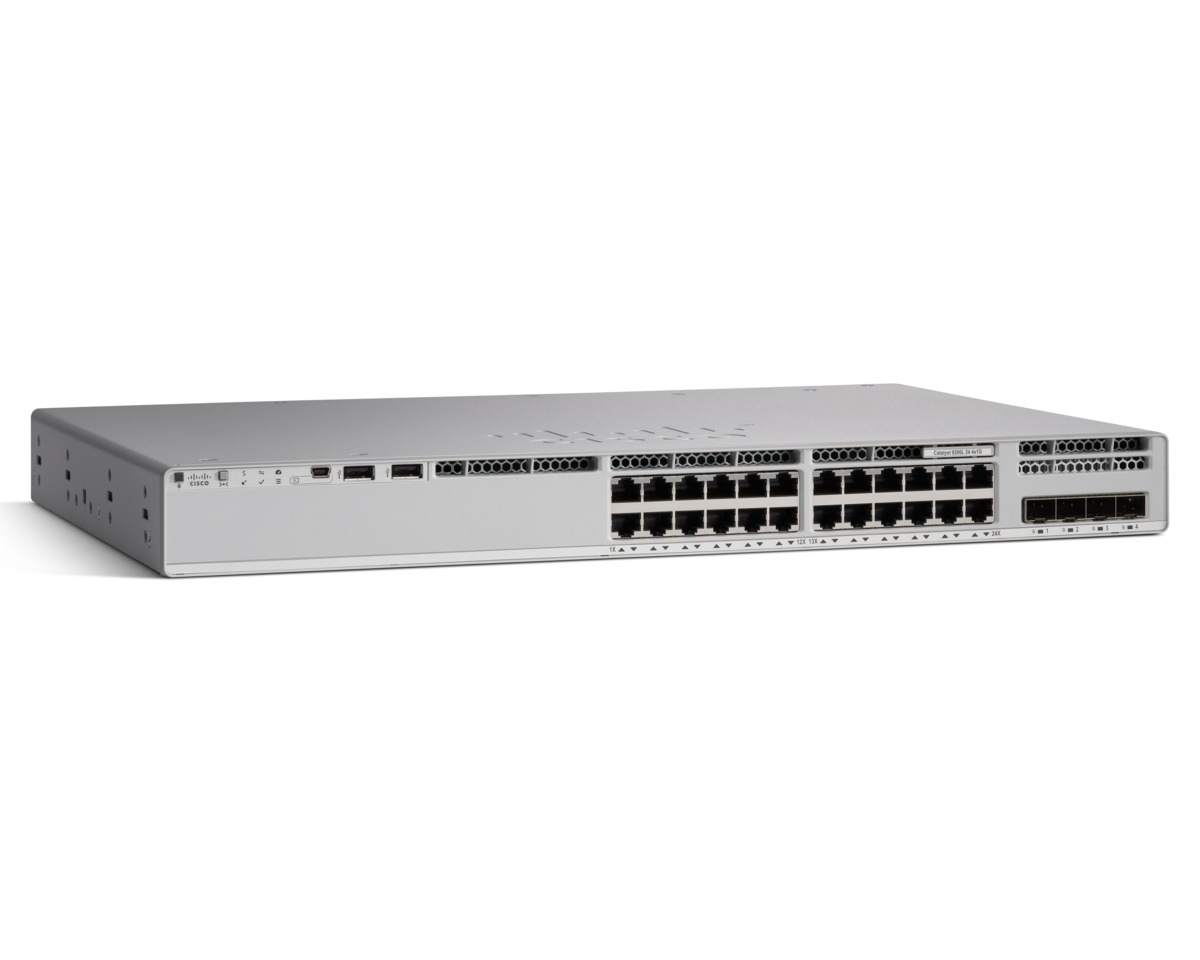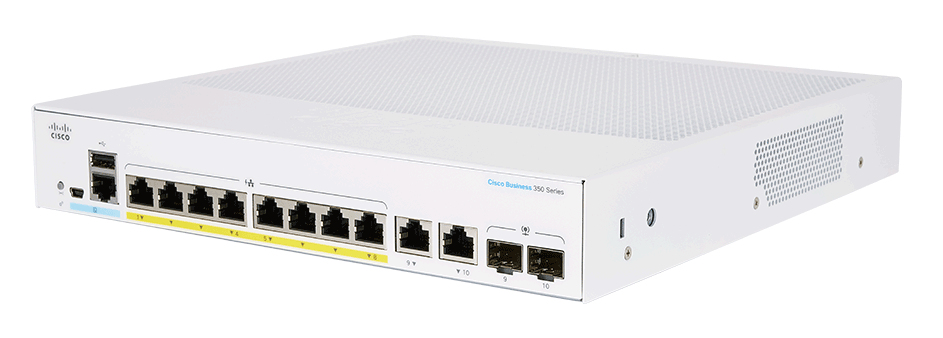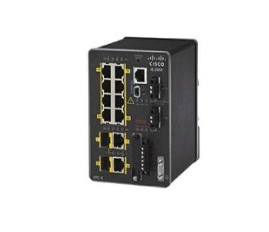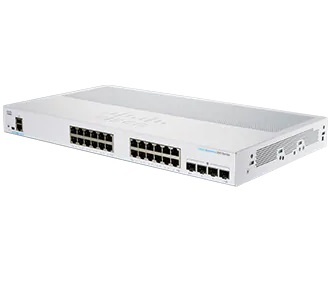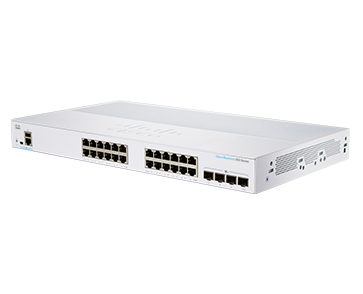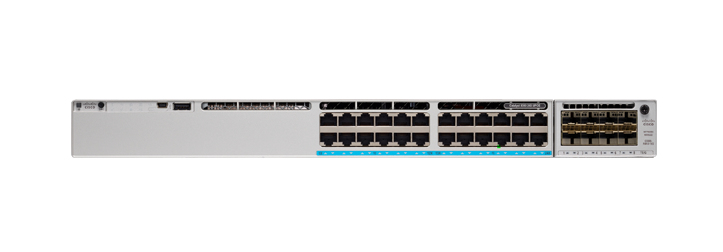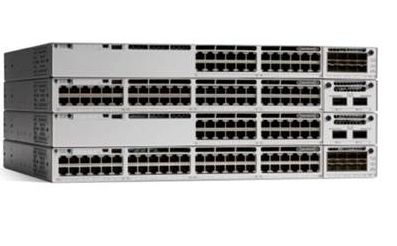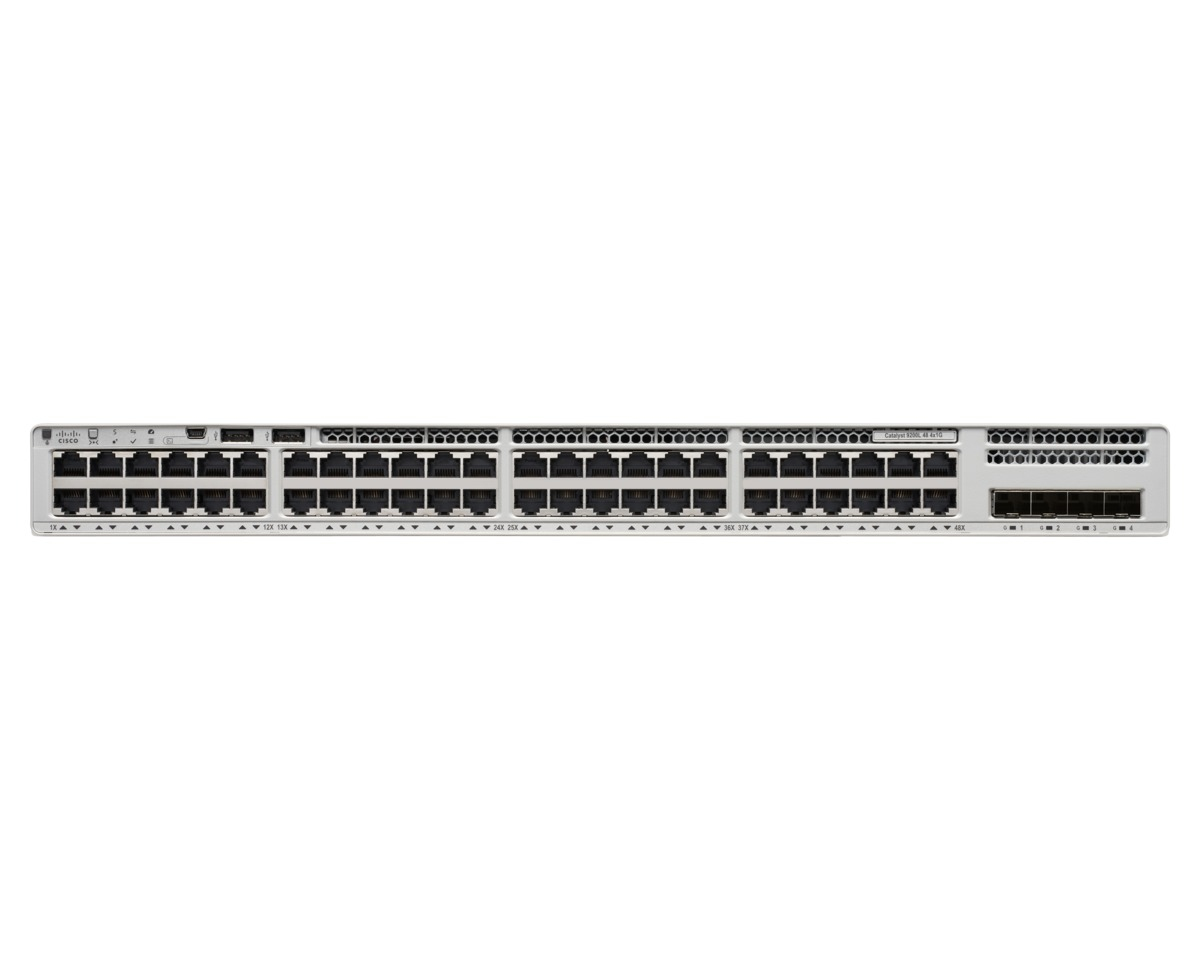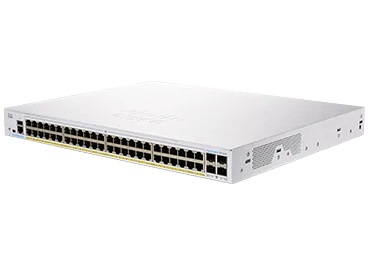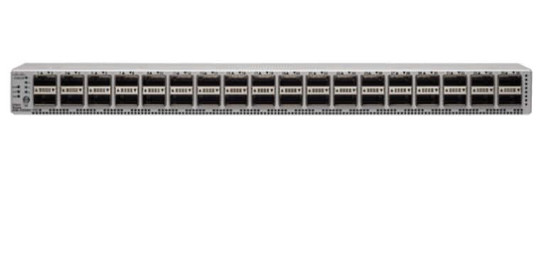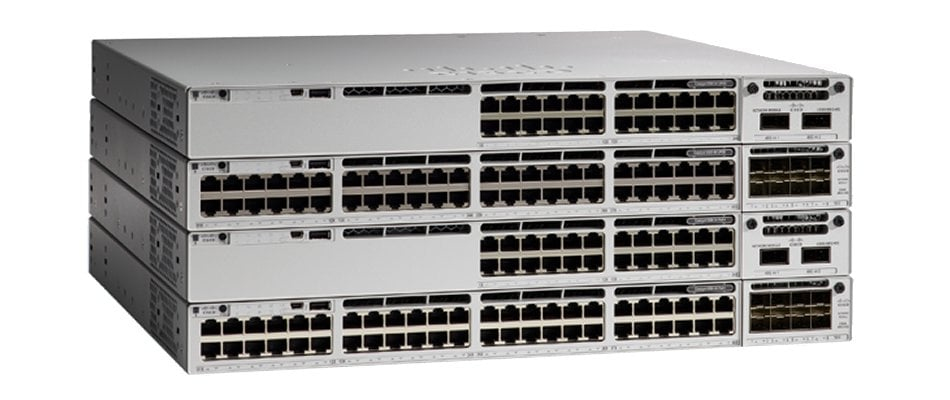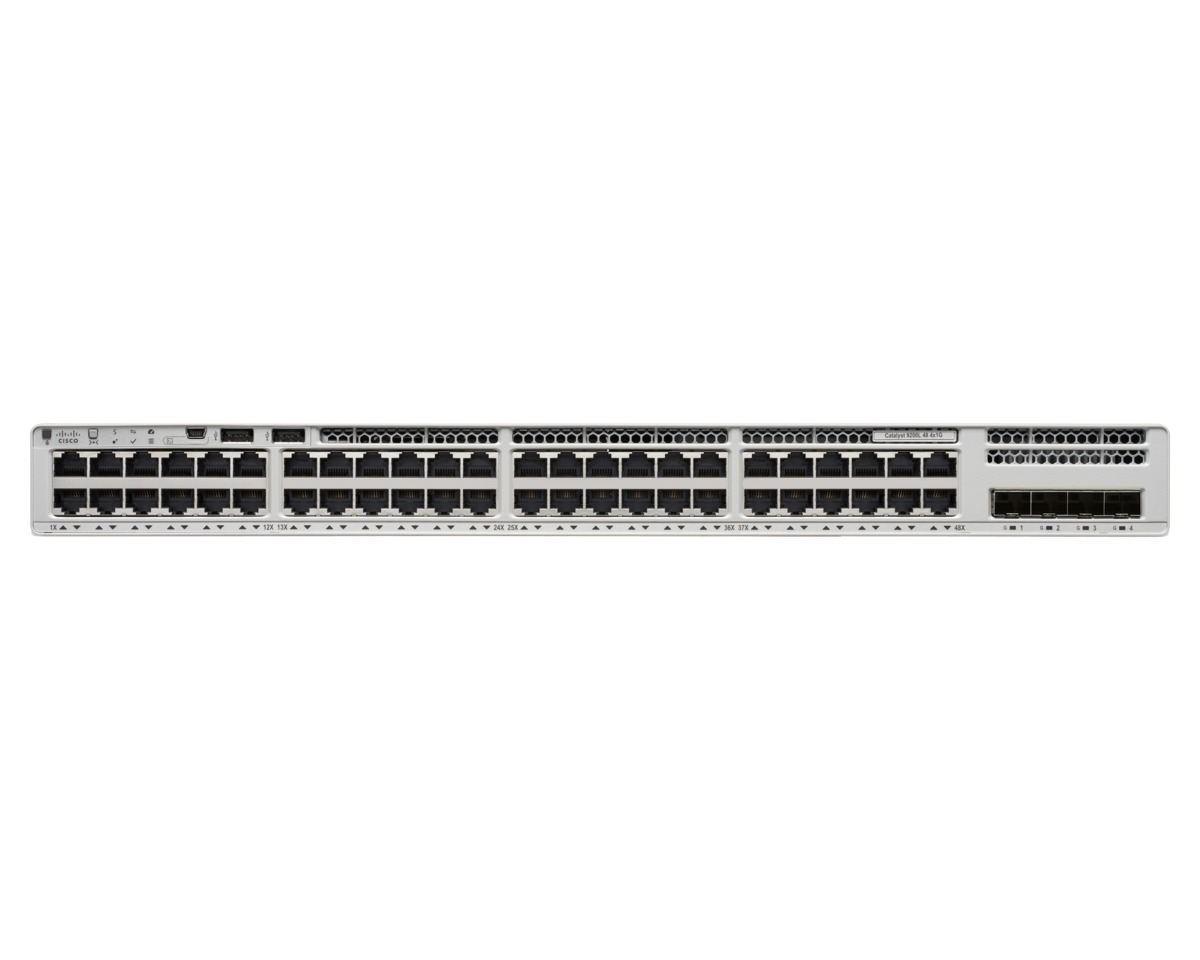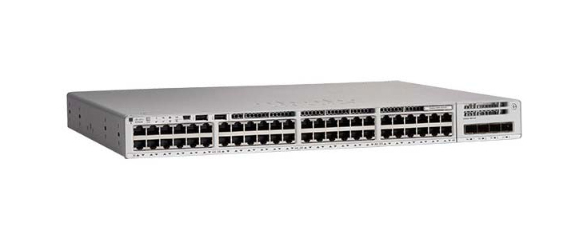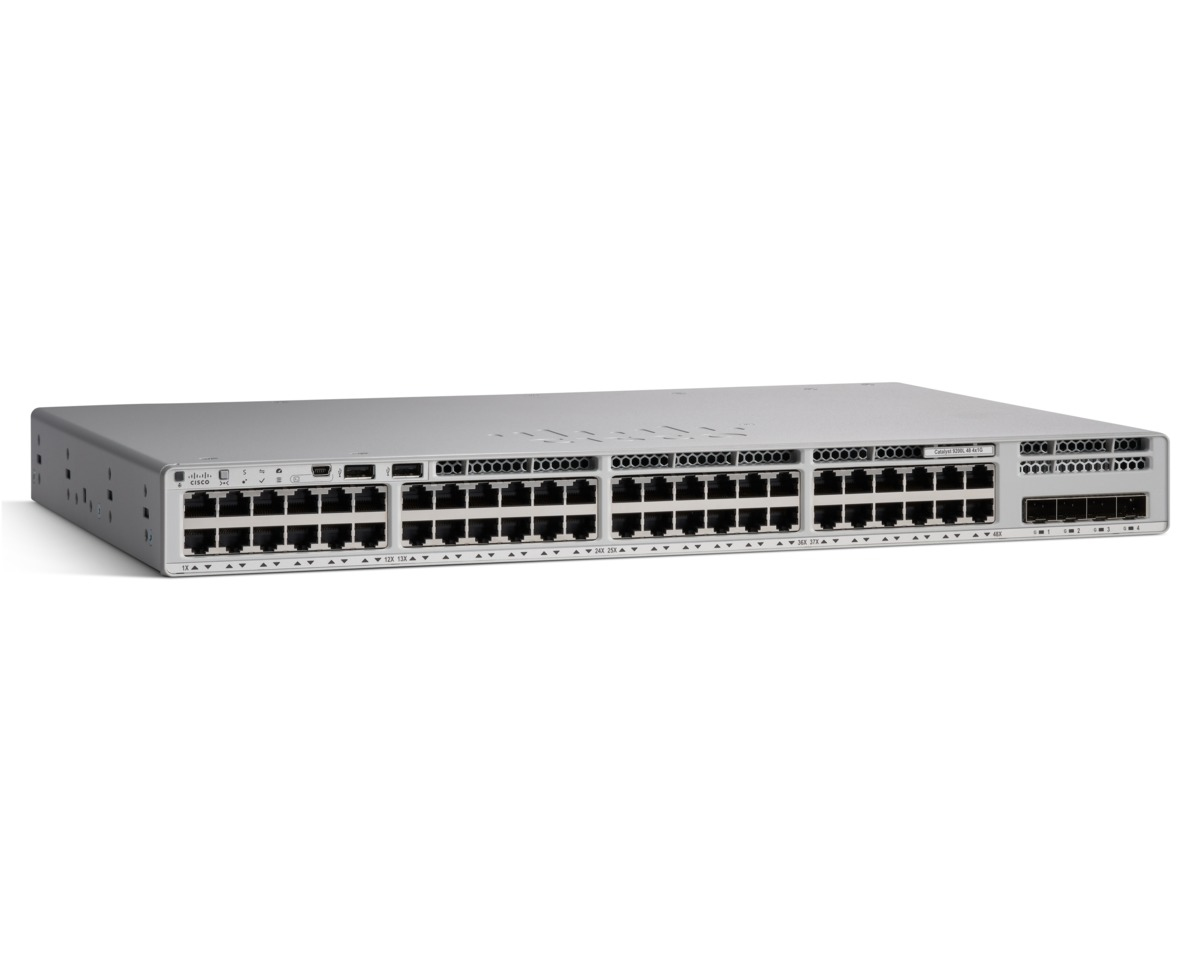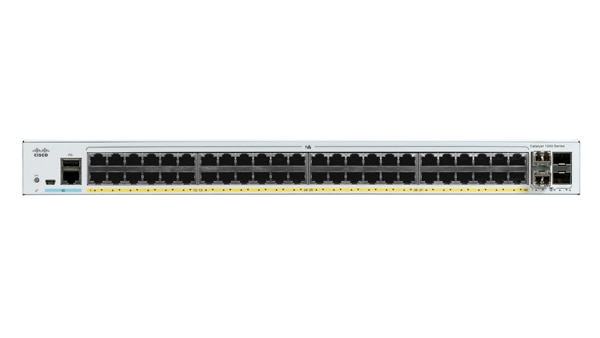Netzwerkgeräte
Filter
CBS110-16T-EU Cisco CBS110 Unmanaged L2 Gigabit Ethernet (10/100/1000) 1U Grey
CBS250-16T-2G-EU Cisco network switch Managed L2/L3 Gigabit Ethernet (10/100/1000) Silver
CBS110-24PP-EU Cisco CBS110 Unmanaged L2 Gigabit Ethernet (10/100/1000) Power over Ethernet (PoE) 1U Grey
CBS110-24T-EU Cisco CBS110 Unmanaged L2 Gigabit Ethernet (10/100/1000) 1U Grey
CBS350-16T-2G-EU Cisco network switch Managed L2/L3 Gigabit Ethernet (10/100/1000) Silver
CBS110-5T-D-EU Cisco CBS110 Unmanaged L2 Gigabit Ethernet (10/100/1000) 1U Grey
CBS250-48P-4G-EU Cisco network switch Managed L2/L3 Gigabit Ethernet (10/100/1000) Silver
CBS350-48P-4G-EU Cisco network switch Managed L2/L3 Gigabit Ethernet (10/100/1000) Silver
CBS110-8PP-D-EU Cisco CBS110-8PP-D Unmanaged L2 Gigabit Ethernet (10/100/1000) Power over Ethernet (PoE) Grey
CBS350-48FP-4X-EU Cisco network switch Managed L2/L3 Gigabit Ethernet (10/100/1000) Silver
CBS350-8MP-2X-EU Cisco CBS350 Managed L3 2.5G Ethernet (100/1000/2500) Power over Ethernet (PoE) 1U Black, Grey
CBS350-8S-E-2G-EU Cisco CBS350 Managed L3 Gigabit Ethernet (10/100/1000) 1U Black, Grey
C1000-8T-2G-L Cisco Catalyst network switch Managed L2 Gigabit Ethernet (10/100/1000) Grey
C1000-16T-2G-L Cisco Catalyst network switch Managed L2 Gigabit Ethernet (10/100/1000) Grey
C1000-48P-4X-L Cisco Catalyst network switch Managed L2 Gigabit Ethernet (10/100/1000) Power over Ethernet (PoE) Grey
C1000-24T-4G-L Cisco Catalyst network switch Managed L2 Gigabit Ethernet (10/100/1000) Grey
C1000-8P-E-2G-L Cisco Catalyst network switch Managed L2 Gigabit Ethernet (10/100/1000) Power over Ethernet (PoE) Grey
GS110-8-HW-EU Cisco Meraki GS110 Managed Gigabit Ethernet (10/100/1000) Grey
CBS250-8T-E-2G-EU Cisco network switch Managed L2/L3 Gigabit Ethernet (10/100/1000) Silver
CBS350-8P-E-2G-EU Cisco network switch Managed L2/L3 Gigabit Ethernet (10/100/1000) Silver
CBS350-48P-4X-EU Cisco network switch Managed L2/L3 Gigabit Ethernet (10/100/1000) Silver
CBS110-16PP-EU Cisco CBS110 Unmanaged L2 Gigabit Ethernet (10/100/1000) Power over Ethernet (PoE) 1U Grey
CBS250-24FP-4G-EU Cisco network switch Managed L2/L3 Gigabit Ethernet (10/100/1000) Silver
CBS250-24T-4X-EU Cisco network switch Managed L2/L3 Gigabit Ethernet (10/100/1000) Silver
C1000-48T-4G-L Cisco Catalyst network switch Managed L2 Gigabit Ethernet (10/100/1000) Grey
C1000-24T-4X-L Cisco Catalyst network switch Managed L2 Gigabit Ethernet (10/100/1000) Grey
IE-2000-8TC-G-B Cisco network switch Managed L2 Fast Ethernet (10/100) Black
C9500-48Y4C-A Cisco Catalyst 9500 – Network Advantage – Switch L3 verwaltet – Switch – 48-Port Managed L2/L3 None Grey
C9500-24Y4C-A Cisco Catalyst network switch Managed L2/L3 None 1U Grey
C9500-16X-A Cisco Catalyst 9500 16-PORT 10GIG SWITCH. NETWORK ADVANTAGE Managed L2/L3 Gigabit Ethernet (10/100/1000) Grey
CBS220-24T-4G-EU Cisco CBS220-24T-4G Managed L2 Gigabit Ethernet (10/100/1000) 1U White
CBS220-8T-E-2G-EU Cisco CBS220-8T-E-2G Managed L2 Gigabit Ethernet (10/100/1000) 1U White
C9300L-24T-4X-E Cisco Catalyst network switch Managed L2/L3 Gigabit Ethernet (10/100/1000) Grey
C1000-8T-E-2G-L Cisco Catalyst network switch Managed L2 Gigabit Ethernet (10/100/1000) Grey
C1000-48FP-4G-L Cisco Catalyst network switch Managed L2 Gigabit Ethernet (10/100/1000) Power over Ethernet (PoE) Grey
SF500-48P-K9-G5 Cisco network switch Managed L2 Power over Ethernet (PoE) 1U Black
SF300-24MP-K9-EU Cisco SF300-24MP Managed L3 Power over Ethernet (PoE) Black
C1000-8P-2G-L Cisco Catalyst network switch Managed L2 Gigabit Ethernet (10/100/1000) Power over Ethernet (PoE) Grey
C9200-24P-A Cisco Catalyst C9200L Managed L3 Gigabit Ethernet (10/100/1000) Power over Ethernet (PoE) Grey
CBS250-8PP-D-EU Cisco CBS250 Managed L3 Gigabit Ethernet (10/100/1000) Power over Ethernet (PoE) Grey
N9K-C92348GC-X Cisco Nexus network switch Managed Gigabit Ethernet (10/100/1000) 1U Grey
IE-2000-8TC-G-E Cisco network switch Managed Fast Ethernet (10/100) Black
CBS250-24T-4G-EU Cisco network switch Managed L2/L3 Gigabit Ethernet (10/100/1000) Silver
CBS350-24T-4X-EU Cisco network switch Managed L2/L3 Gigabit Ethernet (10/100/1000) Silver
C9300-24U-E Cisco Catalyst network switch Managed L2/L3 Gigabit Ethernet (10/100/1000) Grey
C9200-48P-A Cisco Catalyst C9200 Managed L3 Gigabit Ethernet (10/100/1000) Grey
CBS250-48P-4X-EU Cisco network switch Managed L2/L3 Gigabit Ethernet (10/100/1000) Silver
N9K-C9336C-FX2 Cisco Nexus network switch Managed L2/L3 None Grey
C9300X-24Y-E Cisco Catalyst 9300X Managed L3 2.5G Ethernet (100/1000/2500)
C9300-48UN-A Cisco Catalyst C9300-48U-A Managed L2/L3 Gigabit Ethernet (10/100/1000) Grey
C9200-48T-E Cisco Catalyst C9200 Managed L3 Gigabit Ethernet (10/100/1000) Grey
CBS220-24P-4G-EU Cisco CBS220-24P-4G Managed L2 Gigabit Ethernet (10/100/1000) Power over Ethernet (PoE) 1U White
C9200L-48T-4X-A Cisco Catalyst C9200L Managed L3 10G Ethernet (100/1000/10000) Grey
C1000-48T-4X-L Cisco Catalyst network switch Managed L2 Gigabit Ethernet (10/100/1000) Grey
C9300-48P-A Cisco Catalyst network switch Managed L2/L3 Gigabit Ethernet (10/100/1000) Power over Ethernet (PoE) Grey
C1000-16T-E-2G-L Cisco Catalyst network switch Managed L2 Gigabit Ethernet (10/100/1000) Grey
C9300L-48P-4X-E Cisco Catalyst 9300 48-port data Ntw Ess Managed L2/L3 Gigabit Ethernet (10/100/1000) Grey
How to Find the Perfect Network Equipment Supplier for Your Business
You know your business networking needs are important, but finding the right network equipment supplier isn’t always easy. With so many options out there, how do you determine who is reliable, affordable and the best fit for your company’s needs? Don’t worry, we’ve got you covered. In this article, we’ll walk you through the key things to consider when evaluating network equipment suppliers so you can find a partner you can trust for the long haul. After all, your network infrastructure is the backbone of your business, so taking the time to find the perfect supplier is worth it. By the end of this article, you’ll feel confident in finding a supplier that ticks all the boxes so you can get back to focusing on what really matters – growing your business.
Types of Network Equipment: Switches, Routers, Firewalls and More
When it comes to keeping your business network running smoothly, the equipment you choose matters. There are several types of essential network gear you’ll want to consider.
Switches are what connect all your devices together, whether it’s computers, printers, servers or other network equipment. For most small businesses, an unmanaged gigabit switch will work great. It’s affordable, plug and play, and provides fast connectivity for your entire network.
Routers direct traffic between your local network and the internet. A basic wireless router is good for a small office, while more advanced routers offer features like built-in firewalls, VPN capabilities, and the ability to create separate networks. For a fast, reliable router, look for one that supports the latest Wi-Fi 6 standard.
Firewalls
Firewalls create a barrier between your internal network and external networks like the internet. They monitor incoming and outgoing traffic and block anything suspicious to help prevent cyber threats. For maximum protection, consider a next-generation firewall that uses deep packet inspection.
Wireless access points extend your Wi-Fi coverage so you have a fast, stable signal in every corner of your office. Look for access points that support the new, faster Wi-Fi 6 standard and mesh technology for the most seamless coverage.
Other useful gear includes modems to connect to your internet service, network cables to physically connect devices, and network attached storage (NAS) for shared storage and backups.
With the help of a knowledgeable network equipment supplier, you can create an infrastructure tailored to your unique business needs and budget. Do your research, understand your options, and choose high-quality, interoperable gear for the best network performance. Your company’s connectivity depends on it!
Key Factors to Consider When Choosing Network Equipment
Choosing a network equipment supplier is an important decision that will impact your business for years to come. Here are some key factors to consider:
Experience and expertise. Look for a supplier with a proven track record of serving businesses like yours. They should have technical experts on staff who really understand your needs. An established company will also likely have better service and support.
Range of products. Select a supplier that can provide all the network equipment you require from reputable brands. That includes routers, switches, firewalls, wireless access points and anything else to build and maintain your network infrastructure. Having one source for everything will make your life easier.
Competitive pricing. Do some comparison shopping to find a supplier with affordable pricing for the network equipment you need. But don’t choose a supplier based only on price – expertise and service are also extremely important. See if you can negotiate a discount for bulk orders or long-term commitments.
Responsive service and support. Look for a supplier that emphasises customer service and provides technical support when you need it. They should have multiple ways to contact them, quick response times, and technicians available to assist you with issues like configuration, installation or troubleshooting.
Future innovation. The network equipment industry is constantly evolving with new technologies like SD-WAN, Wi-Fi 6 and 400G Ethernet. Choose a forward-thinking supplier that stays on the cutting edge so they can advise you on the latest networking innovations and help future-proof your infrastructure.
Finding the right network equipment supplier is worth the effort. Do some research, determine what factors are most important for your business, and take the time to evaluate different companies. The supplier you choose can make a big difference in how well your network runs and how much time and money you spend maintaining it. With the support of a knowledgeable partner, your network will be able to drive productivity, connectivity and growth for years to come.
Top Brands for Enterprise Network Solutions
When selecting a network equipment supplier for your business, you’ll want to consider top brands that are trusted and reputable. A few of the leading options include:
Cisco
Cisco is one of the most well-known and respected brands for enterprise networking solutions. They offer a range of products like routers, switches, wireless access points, and network management software. Cisco equipment is high quality, reliable, and designed to handle the demands of large business networks. However, their products also tend to be on the higher end of the price spectrum. If budget is a concern, Cisco may not be the most affordable choice.
Juniper Networks
Juniper Networks is another reputable brand that provides innovative networking products for businesses. They are known for their high-performance routers, switches, and security solutions. Juniper’s products are very scalable, flexible, and equipped with advanced features for optimising network performance. They do cater more to large enterprises, so their solutions may be overkill for small to mid-sized organisations. Pricing for Juniper gear is comparable to Cisco.
Ubiquiti Networks
Ubiquiti Networks offers high-value, enterprise-level networking equipment at lower price points than brands like Cisco and Juniper. They provide a range of routers, security gateways, switches, and wireless networking products suitable for small, mid-size and large organisations. Ubiquiti’s equipment is very capable but offered at a fraction of the cost of other leading brands. For budget-conscious businesses, Ubiquiti can be an excellent choice to get enterprise features and performance without the typical high cost.
TP-Link
TP-Link is a reputable supplier that offers very affordable networking solutions for small to medium-sized businesses. They provide basic routers, switches, access points, and network adapters that can handle the needs of most small office and business networks. TP-Link products are simple to set up and manage, budget-friendly, and provide good value and reliability for the price. However, their equipment may lack some of the advanced features and scalability of other enterprise brands. For very large networks, TP-Link products may not have the capabilities required.
In summary, consider both your current needs and future growth when choosing a network equipment supplier. A reputable brand that offers scalable yet affordable solutions is often the best option for most organisations. With some research, you can find enterprise-level products that fit your budget.
Why Buy From a Specialist Network Equipment Supplier?
Buying network equipment and IT solutions from a specialist supplier has many benefits over a general reseller. Here are a few of the top reasons to consider a dedicated network equipment provider like Infracko for your business needs:
Expertise
A network equipment specialist has in-depth knowledge about the latest technologies, products, and solutions in the field. Their sales and support staff are experts who can guide you to the right solutions for your specific needs and challenges. With fast-changing network technologies, you want a partner that stays on the cutting edge.
Larger Selection
Specialist suppliers focus on network equipment, so they offer a wider range of products to choose from major brands. Whether you need routers, switches, firewalls, wireless access points or VoIP phones, they will have a variety of trusted options at multiple price points. You’re more likely to find exactly what you need for your network setup.
Custom Solutions
Some businesses have unique requirements that need tailored solutions. A specialist network equipment provider has the capabilities and experience to design and deploy customised solutions to fit your needs. They can bundle products and services, integrate third-party software, or develop entirely new solutions to help optimise your network.
Superior Support
Once you’ve purchased and deployed your network equipment, ongoing support becomes critical. Specialist suppliers offer technical support, warranty, and service level agreements to ensure maximum uptime and performance. They have the expertise to quickly troubleshoot issues, configure new equipment, and provide guidance on scaling or upgrading your network over time. Support from general resellers typically lacks the same level of knowledge and responsiveness.
Future-Proofing
Technology is always moving forward, so you want a supplier that helps future-proof your investments. A specialist network equipment provider stays on top of new technologies like SD-WAN, Wi-Fi 6, and VoIP and can advise you on how and when to adopt them. They will make sure any solutions they provide are built to be scalable, upgradable, and able to integrate with new technologies as they emerge. This helps maximise the lifespan of your network equipment and minimise unnecessary upgrades.
In summary, there are clear advantages to partnering with a dedicated network equipment supplier like Infracko for your business. Their expertise, selection, custom solutions, support, and future-proof approach can help optimise your network for today and prepare you for what’s coming next. For hassle-free network purchasing and management, a specialist provider is the way to go.
How to Find a Reliable Network Equipment Supplier
Finding a reliable network equipment supplier is crucial for any business. When evaluating potential suppliers, here are some of the most important factors to consider:
Experience and Expertise
Look for a supplier with extensive experience providing networking solutions and services to businesses similar to yours. They should have certified technicians and engineers on staff who stay up-to-date with the latest technologies and standards. Ask about their areas of expertise and see if they align with your needs. For example, if you’re a small business, you’ll want a supplier focused on solutions for SMBs. If you’re in healthcare, find one experienced serving that industry.
Range of Products
Choose a supplier that offers equipment and software from reputable brands that meet your requirements. For example, for core networking look for suppliers offering products from companies like Cisco, Juniper, Aruba or Ruckus. For security, Fortinet, Check Point or SonicWall. And for wireless, Ruckus, Aruba or Cisco. A range of compatible products will allow you to find optimal solutions for your budget and needs.
Customer Service and Support
Look for a supplier that emphasises customer service and offers robust pre- and post-sales support. This includes features like pre-sales consulting to determine the best solutions for your issues, configuration and installation services to get your new equipment up and running, and ongoing technical support to quickly resolve any problems that arise. For critical networking infrastructure, support that is available 24/7 is ideal.
Future-Ready Solutions
Choose a supplier actively developing their service offerings to leverage the latest networking technologies, like SD-WAN, edge computing, and IoT. They should have a roadmap for supporting emerging technologies so they can continue to meet your needs well into the future. For example, Infracko ApS, a Danish B2B dealer, offers an extensive array of top-tier network equipment and IT solutions with a focus on future-ready technologies.
By evaluating potential suppliers based on these factors, you can find a knowledgeable partner committed to providing the networking solutions and support your business requires now and for years to come. A reliable supplier can make all the difference in keeping your technology infrastructure running smoothly and securely.
How Much Should You Budget for High Performance Network Equipment?
When it comes to budgeting for high performance network equipment, the costs can vary quite a bit depending on your specific needs and how much performance you require. As a general rule of thumb, you’ll want to budget at least $10,000 to $30,000 for a small to mid-sized business network, while an enterprise-level network for a large organisation could cost $100,000 or more.
Factors that Determine Your Network Equipment Budget
Several key factors will determine how much you need to budget for your network equipment:
Network size and scale – The larger your network and the more connections and higher bandwidth you need to support, the higher your costs will be. An enterprise network supporting thousands of users and high-bandwidth applications will cost significantly more than a small office network for a handful of employees.
Performance requirements – If you need high-performance, low-latency equipment for real-time applications, costs will be higher. Basic connectivity and lower bandwidth needs are more affordable. Consider your needs for speed, bandwidth, latency, and QoS.
Advanced features – Equipment with advanced features like built-in firewalls, Wi-Fi, PoE ports, and 10 Gigabit or faster Ethernet will cost more than basic switches and routers. Think about what features are must-haves vs nice-to-haves for your needs.
Equipment type – Core network equipment like routers, switches, and wireless access points make up the bulk of costs. Cabling, racks, and other infrastructure also need to be budgeted for. Work with your network consultant or vendor to determine what types of equipment you’ll need.
Vendor and equipment quality – Higher-quality, enterprise-grade equipment from Cisco, Juniper, Aruba or other top brands will cost significantly more than lower-end equipment from less reputable brands. Consider your needs for reliability, durability, warranty, and tech support.
Installation and configuration – Don’t forget to budget for the costs to instal, configure and integrate new network equipment. This can often cost as much as or more than the equipment itself.
Maintenance and support – Ongoing costs for maintenance, support contracts, software upgrades and replacement equipment should also be budgeted for. These costs are often an annual expense.
With some upfront planning and determining your key requirements, you can develop a realistic budget for the high performance network equipment you need. Be sure to think both short-term for initial purchase and installation as well as long-term for ongoing maintenance and upgrades. Your network is a vital part of your business, so budget accordingly!

